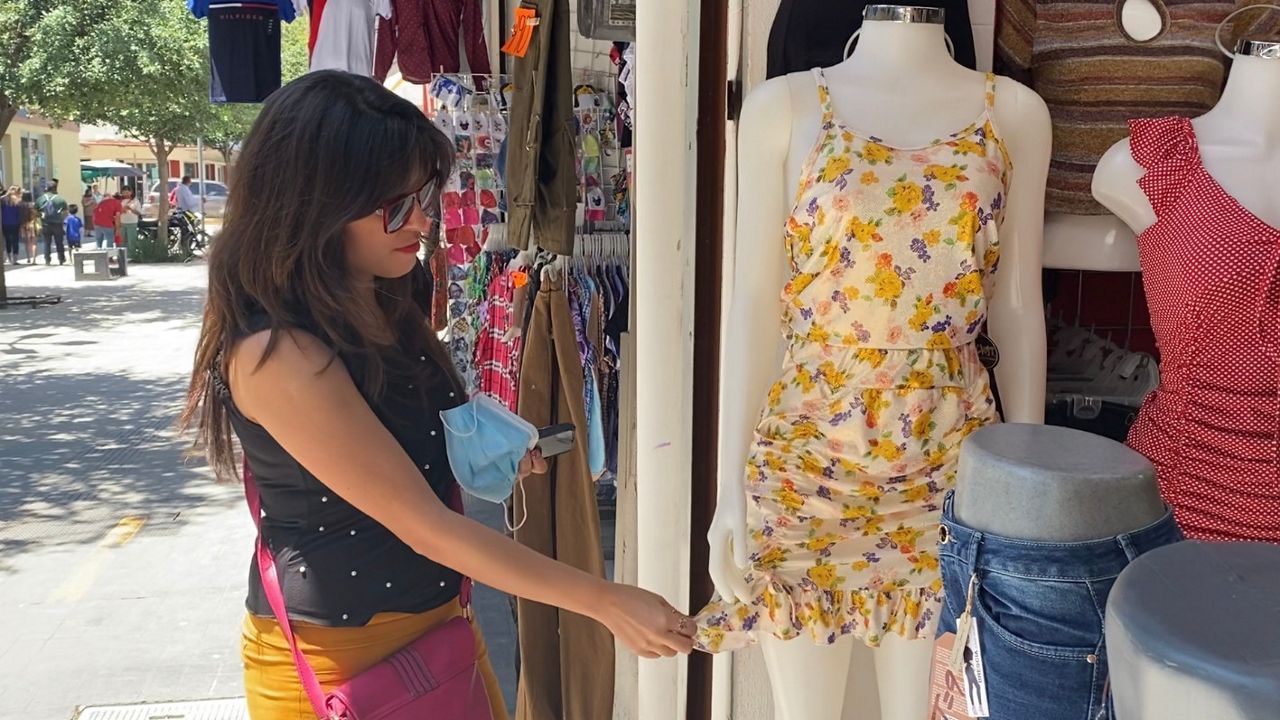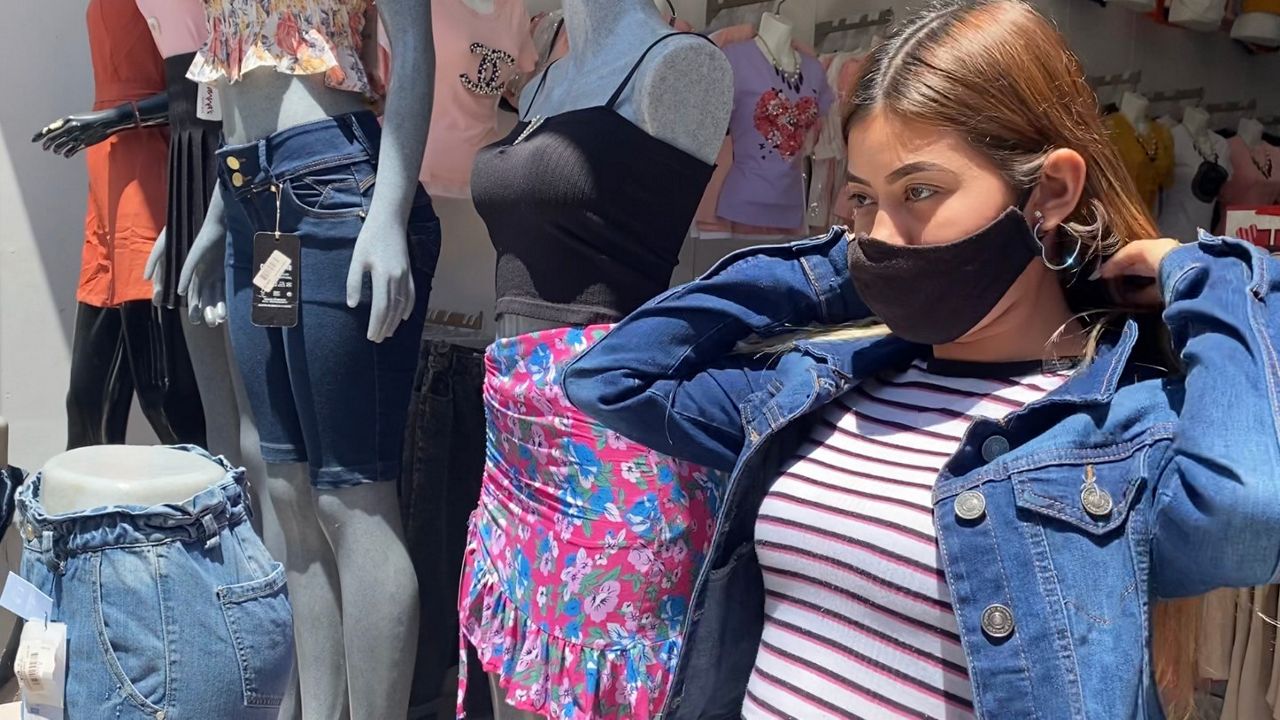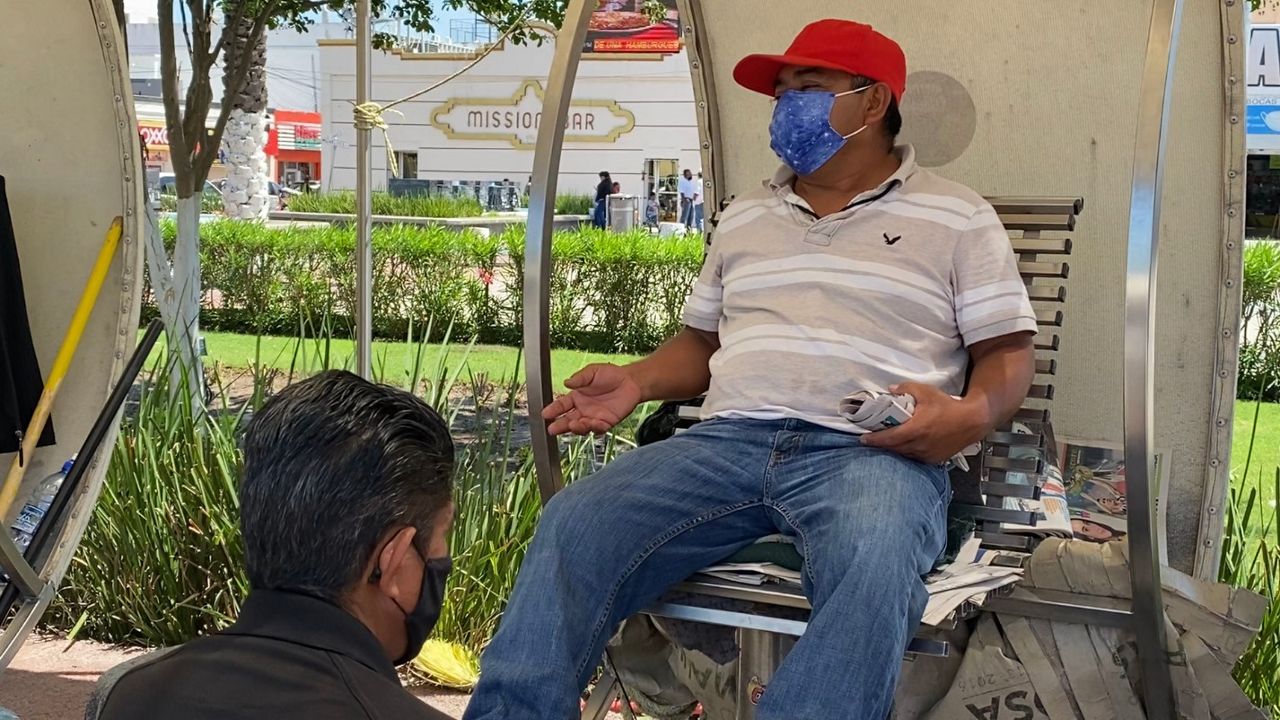REYNOSA, Mexico — It’s the usual routine for Ana Karen Gonzalez Romo who has to drive around daily in the city of Reynosa for work. The streets are buzzing with activity and Romo, an insurance agent and longtime Reynosa resident, thinks she knows what’s going on.
She believes closing the border to visa holders and border crossing card holders like her may have had an unintended positive impact “…because people before, they used to go shopping to McAllen, and now people buy and consume locally,” she said, pointing out to the different stores and merchandise displayed on the streets along the way, filled with customers.
As a matter of fact, Romo went shopping for some clothing downtown. She said that before the pandemic closure she used to go every weekend into Texas to McAllen’s La Plaza Mall, or to the outlets in Mercedes for clothes.

Saturday night, the bars and restaurants located along 17th Street in McAllen used to be her favorite.
All of that is a thing of the past now for her and the 700,000 residents of Reynosa. The U.S. government, in accordance with the Mexican government, shut down the border to non-essential travel in early 2020. This was done to curb COVID-19 infections as millions of people cross the border back and forth daily.
The border was expected to finally reopen May 21, but two days prior to that an announcement was made that the closure would be extended until June 21.
“We are all attentive to when the bridge will open. We want the bridge open just so we can go shopping,” Romo said, half-jokingly, about the impatience many are already feeling.
After parking her car she continued her trip waking through the streets of downtown Reynosa, which looked busier than its McAllen counterpart. She went to one of her favorite local shopping stores owned and attended by Aylin Rodriguez, who has a different story to tell.

Rodríguez says because of the border closure “…I have less clients. Americans used to come shopping here a lot and they were always a very good daily sale.”
Meanwhile in the nearby Central Square, where local residents enjoy the weather under the central gazebo and families and couples walk around the square peacefully, Ramiro Lopez is getting a quick shoe shine before going to work at the bus station. He said he is fortunate to still have a job. The border closure created a sharp demand for passenger buses going to the U.S.

“At the bus station we were affected. Why? They only left six of the oldest employees, and the rest were laid off,” said Lopez .
But they all agreed that it’s not only about the economy or going shopping. The closure is also about human connections that have been severed. Gonzales is counting the days.
“I want them to open it already! I have a lot of family members I haven’t been able to see. Also, so that the economy here in Mexico recovers again,” she said.
McAllen businesses have complained of economic losses because of the absence of Mexican shoppers who made up to 80% of its sales. Many business owners have complained that the contributions of Mexican consumers were underestimated and undervalued, but for Romo that is not at all the case.
“I think it’s not about what we contribute or not. I don’t think they actually wanted to close it as such, just because. It was because it became necessary to be closed.”
And Romo is optimistic about the future.
“Just take a look. Reynosa is alive,” she said, smiling.



